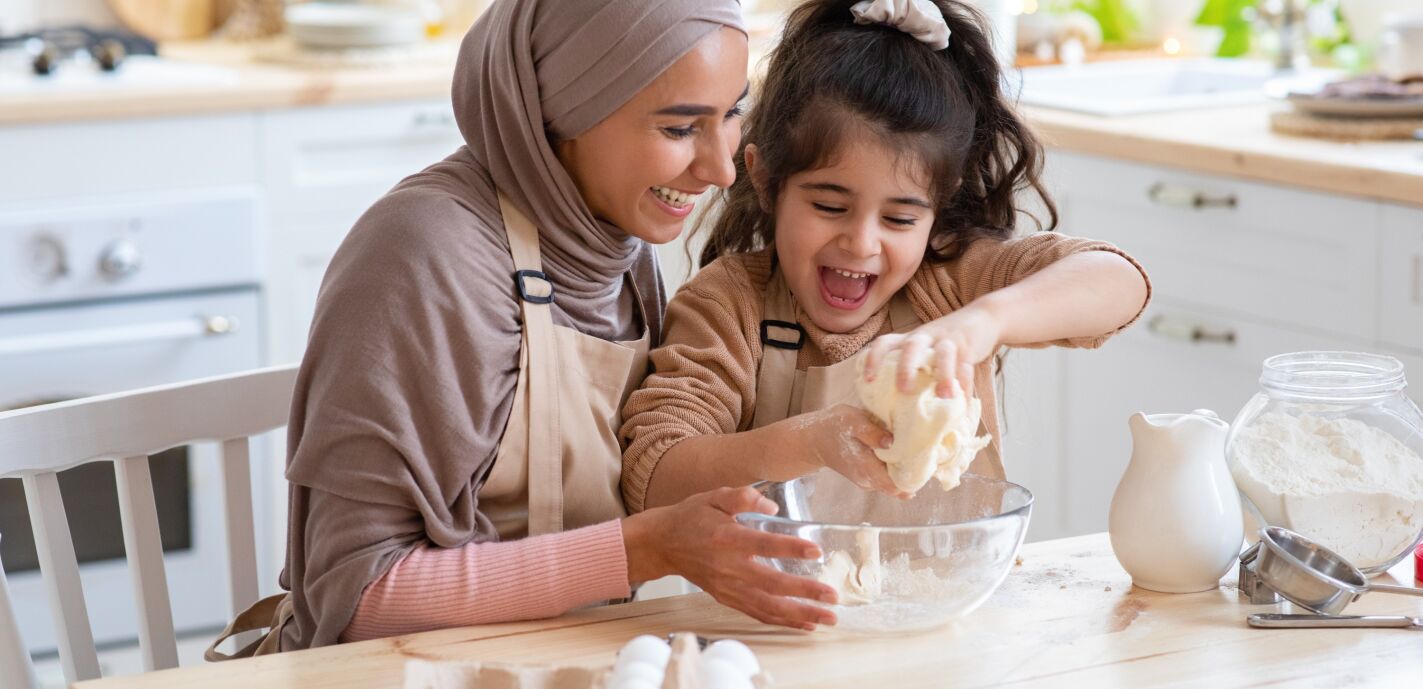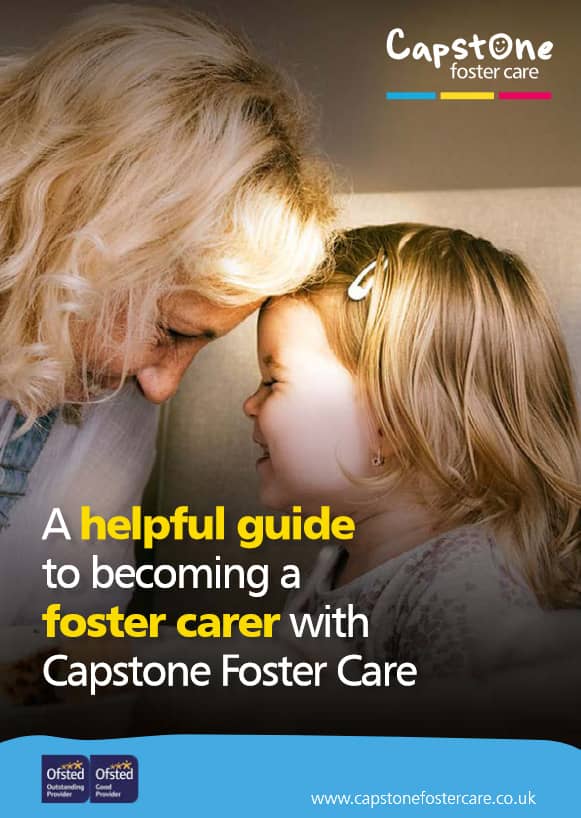


Fostering a disabled child
The role of an independent fostering agency
How to choose a foster care agency
Can I choose who I foster?
What are the benefits of fostering with an independent fostering agency?
What happens when a child is taken into care?
Fostering process: what happens on an initial home visit?
Fostering with local authority vs independent agency
A complete guide to becoming a foster carer
How Are Children in Foster Care Matched with Carers?
Foster Care Budgeting Tips
Becoming A Foster Carer
What is a Care Leaver?
What is a Foster Carer?
Fostering Regulations
How long does it take to become a Foster Carer?
What are the Foster Care requirements?
Changing IFA - Transferring to Capstone
8 reasons why a child may be taken into care
Fostering as a Career
Can you foster if you smoke or vape?
A guide to fostering assessments
LGBTQ+ Fostering
Equality, Inclusion & Anti-discriminatory Practice in Foster Care
What can disqualify you from foster care?
Can you foster if you’re on benefits?
Top transferable job skills to become a foster carer
Fostering as a same sex couple
Fostering while renting
Can you foster if you have mental health issues?
Is there an age limit for fostering in the UK?
Do foster carers get a pension?
How to foster a child: A step by step guide
How do DBS Checks Work?
Can I foster if...?
Mythbusting the top 10 Foster Care Myths
Can I foster if I am disabled?
LGBT Fostering Mythbusting
Can I foster if I have pets?
Can I Foster A Child?
Can I Foster and Work?
Can you Foster with a Criminal Record
Can Single People Foster?
LGBT Family and Foster Care
Fostering across Cultures
Muslim Fostering
Christian Foster Care
Sikh Fostering
Empty Nest Syndrome and Foster Care
Can I Foster?
What is the difference between residential care and foster care?
Fostering Babies and Young Children
What is Kinship Care?
Fostering Babies - Myths
Focusing on Parent & Child Fostering
Fostering Siblings
Fostering Teenagers
Fostering Teenagers - Breaking down the Myths
Fostering Unaccompanied and Asylum Seeking Children
Mother and Baby Foster Placements
Private Fostering
How does therapeutic fostering work?
Young Children Fostering Placements
Difference between short and long-term fostering
Types of self-harm
A Guide to the Foster Care Handbook
Reunification and Birth Parents: A Guide for Foster Carers
What is an EHC Plan? A Guide for Foster Carers
How to prepare a child for becoming a care leaver
Children who foster: impact of fostering on birth children
Fostering LGBTQ+ Youth
How to prepare your home for a foster child
How to help a lonely child: A Guide for Foster Carers
What are the National Minimum Standards for Fostering Services?
10 tips for foster children's education
How to prepare your foster child for secondary school
Tips for coping when foster placements end
Tips for foster parents during Coronavirus
What happens if foster parents get divorced?
5 ways to manage Mother's Day with foster children
Tips for managing foster children's bedtime routines
How to handle foster child bullying
Fostering allowances and the gender pay gap
What discounts can foster carers get?
How to adopt from Foster Care
5 ways to manage Father's Day for children in foster care
8 most common fostering challenges
FosterTalk Membership with Capstone Foster Care
Supporting foster children's contact with birth families
A guide to independent fostering
Keeping Children Safe Online: A Guide For Foster Carers
Movies About Foster Care
Play-based learning strategies for foster carers
A Guide to the Staying Put Program
Why Foster Parent Wellbeing Matters
How to deal with empty nest syndrome
How to recognise signs of depression in foster children
Can you take a foster child on holiday?
Tips and advice on fostering with a disability
10 tips on connecting with your Foster Child
Fostering vs Adoption - What's the difference?
How Fostering can change a future
How to adopt from Foster Care
How to encourage children to read in Foster Care
How to prepare a Foster Child's bedroom
Reading and Storytelling with Babies and Young Children
Supporting Children's Learning
The 20 most recommended books Foster Carers and young people should read
Things you can do when your children leave home
The impact of early childhood traumas on adolescence and adulthood
Anxious Disorders in Foster Children
What is sexual abuse and sexual violence
Foster Child behaviour management strategies
Foster Parent Advice: What to expect in your first year of fostering
Capstone's twelve tips at Christmas
10 celebrities who grew up in Foster Care
Could Millenials be the solution to the Foster Care crisis?
Do you work in Emergency Services?
Form F Assessor and Assessment Training
Foster Care Fortnight
Improving Children's Welfare - Celebrating Universal Children's Day
New Year - New Career - Become a Foster Carer
Young People Charities
As a foster carer, being involved in the education of your foster child is an important way to support their learning and development. Some children or young people may have had a difficult relationship with education growing up. School can be characterised by disruptions or perhaps not seen as a priority because of challenges in their home lives. Play-based learning can have a positive impact on children’s attitudes towards education and make it less intimidating. In this guide, we’ll explain what play-based learning is, and strategies foster carers can implement at home.
Play-based learning is a context for learning where children organise and make sense of their social worlds, as they engage actively with people, objects, and representations. It combines child-led play with a specific learning intention. Play-based learning is often most effective with younger children, but as children get older, they can still benefit from play-based learning with more complex scenarios.
Play-based learning can take many different forms like messy play, cooking, and baking and can be quite practical and hands-on. One of the main benefits of play-based learning is that there are no negative repercussions or wrong answers. Some of the main types of play-based learning include:
Role play involves the child imagining and reenacting real-world scenarios. For example, they could play going to the supermarket, take a pet to the vet or imagine they are a Roman emperor.
Imaginative play is when a child uses their imagination to come up with their own stories. They could act out the story with their toys, act like they are in an imaginary world. This type of play has no rules or limitations, allowing children to freely express themselves and experiment with different ideas.
Exploratory play is when children use their senses to explore and investigate different things. It’s a great way for children to learn how to problem-solve effectively. Exploratory play can include water play, messy play or playing games like hide and seek.
Playing with action figures, dolls or toy animals and allows children to create their own world and use their imagination. They might explore their thoughts and feelings by acting it out with figures, or they may explore real life scenarios.
Physical play can include a wide range of games where children use their bodies to take part in physical play. This is when they develop their motor skills and can include activities like;
It’s also a good way to exercise and learn the importance of being active.
Play-based learning offers foster children the opportunity to engage in activities that aid their educational and emotional development in a supportive environment. Some of the key skills that they’ll learn to develop in play-based learning include;
Here at Capstone, we have a therapeutic approach to everything we do. Creating a safe and loving environment is essential for the happiness and development of your foster child. As part of our therapeutic approach, we provide a bespoke service Multi-disciplinary Assessment Treatment and Therapy Service (MATTS). MATTS provides mental health support to children at the point of need, which includes access to various specialist clinicians, helping you to develop a safe space for your foster child.
Ready to start your foster carer journey? Find out more about how much foster parents get paid, or how to apply to become a foster carer. Or, if you have any other questions don’t hesitate to contact us today.
If you’ve got any questions or would like to find out more about fostering with Capstone, fill out the form below.
An experienced fostering advisor from your local area will then be in touch.

Start the conversation today. Our team of friendly advisors are on hand to answer any foster care questions you may have. We can offer you honest and practical advice that can help you decide if becoming a foster carer is the right path for you.


